- Home
- William Shakespeare
Henry V Page 8
Henry V Read online
Page 8
Seem frosty? O, for honour of our land,
Let us not hang like roping23 icicles
Upon our houses' thatch, whiles a more frosty people
Sweat drops of gallant youth in our rich fields!
Poor we may call them in their native lords.26
DAUPHIN By faith and honour,
Our madams28 mock at us, and plainly say
Our mettle is bred out29 and they will give
Their bodies to the lust of English youth
To new-store31 France with bastard warriors.
BOURBON They bid us to the English dancing-schools,
And teach lavoltas high and swift corantos33,
Saying our grace is only in our heels34
And that we are most lofty35 runaways.
FRENCH KING Where is Montjoy the herald?36 Speed him hence.
Let him greet England37 with our sharp defiance.
Up, princes, and with spirit of honour edged
More sharper than your swords, hie39 to the field:
Charles Delabret, High Constable of France,
You Dukes of Orleans, Bourbon, and of Berri,
Alencon, Brabant, Bar, and Burgundy;
Jaques Chatillion, Rambures, Vaudemont,
Beaumont, Grandpre, Roussi, and Fauconbridge,
Foix, Lestrale, Boucicault, and Charolais,
High dukes, great princes, barons, lords and knights,
For your great seats47 now quit you of great shames.
Bar48 Harry England, that sweeps through our land
With pennons49 painted in the blood of Harfleur.
Rush on his host50, as doth the melted snow
Upon the valleys, whose low vassal seat
The Alps doth spit and void52 his rheum upon.
Go down upon him, you have power enough,
And in a captive chariot into Rouen54
Bring him our prisoner.
CONSTABLE This becomes the great.56
Sorry am I his numbers are so few,
His soldiers sick and famished in their march,
For I am sure, when he shall see our army,
He'll drop his heart60 into the sink of fear
And for achievement61 offer us his ransom.
FRENCH KING Therefore, lord constable, haste on62 Montjoy,
And let him say to England that we send
To know what willing ransom he will give.--
Prince Dauphin, you shall stay with us in Rouen.
DAUPHIN Not so, I do beseech your majesty.
FRENCH KING Be patient, for you shall remain with us.--
Now forth, lord constable and princes all,
And quickly bring us word of England's fall.
Exeunt
[Act 3 Scene 6]
running scene 8
Enter Captains, English and Welsh: Gower and Fluellen
GOWER How now, Captain Fluellen? Come you from the
bridge?2
FLUELLEN I assure you, there is very excellent services3
committed at the bridge.
GOWER Is the Duke of Exeter safe?
FLUELLEN The Duke of Exeter is as magnanimous6 as
Agamemnon7, and a man that I love and honour with my
soul and my heart and my duty and my life and my living
and my uttermost power. He is not -- God be praised and
blessed! -- any hurt in the world, but keeps the bridge most
valiantly, with excellent discipline. There is an aunchient
lieutenant there at the pridge12, I think in my very conscience
he is as valiant a man as Mark Antony13, and he is a man of no
estimation in the world, but I did see him do as gallant
service.
GOWER What do you call him?
FLUELLEN He is called Aunchient17 Pistol.
GOWER I know him not.
Enter Pistol
FLUELLEN Here is the man.
PISTOL Captain, I thee beseech to do me favours:
The Duke of Exeter doth love thee well.
FLUELLEN Ay, I praise God, and I have merited some love at his
hands.
PISTOL Bardolph, a soldier, firm and sound of heart,
And of buxom25 valour, hath, by cruel fate,
And giddy26 Fortune's furious fickle wheel,
That goddess blind,
That stands upon the rolling restless stone28--
FLUELLEN By your patience29, Aunchient Pistol. Fortune is
painted blind, with a muffler30 afore her eyes, to signify to you
that Fortune is blind; and she is painted also with a wheel, to
signify to you, which is the moral of it, that she is turning
and inconstant, and mutability, and variation. And her foot,
look you, is fixed upon a spherical stone, which rolls and rolls
and rolls. In good truth, the poet makes a most excellent
description of it. Fortune is an excellent moral.36
PISTOL Fortune is Bardolph's foe, and frowns on him,
For he hath stol'n a pax38,
And hanged must a be -- a damned death!
Let gallows gape for dog, let man go free
And let not hemp41 his wind-pipe suffocate.
But Exeter hath given the doom42 of death
For pax of little price.
Therefore, go speak -- the duke will hear thy voice --
And let not Bardolph's vital thread45 be cut
With edge of penny cord46 and vile reproach.
Speak, captain, for his life, and I will thee requite.47
FLUELLEN Aunchient Pistol, I do partly48 understand your
meaning.
PISTOL Why then, rejoice therefore.
FLUELLEN Certainly, aunchient, it is not a thing to rejoice at,
for if52, look you, he were my brother, I would desire the duke
to use his good pleasure and put him to execution; for
discipline ought to be used.
PISTOL Die and be damned! And figo55 for thy friendship!
FLUELLEN It is well.
PISTOL The fig of Spain!
Exit
FLUELLEN Very good.
GOWER Why, this is an arrant59 counterfeit rascal. I
remember him now: a bawd60, a cutpurse.
FLUELLEN I'll assure you, a uttered as prave words at the
pridge as you shall see in a summer's day.62 But it is very well.
What he has spoke to me, that is well, I warrant63 you, when
time is serve.64
GOWER Why, 'tis a gull65, a fool, a rogue, that now and then
goes to the wars to grace himself at his return into London
under the form of a soldier; and such fellows are perfect67 in
the great commanders' names, and they will learn you68 by
rote where services were done; at such and such a sconce69, at
such a breach, at such a convoy70, who came off bravely, who
was shot, who disgraced, what terms the enemy stood on71 --
and this they con72 perfectly in the phrase of war, which they
trick up73 with new-tuned oaths. And what a beard of the
general's cut74 and a horrid suit of the camp will do among
foaming bottles and ale-washed75 wits is wonderful to be
thought on. But you must learn to know such slanders of76
the age, or else you may be marvellously mistook.77
FLUELLEN I tell you what, Captain Gower, I do perceive he is
not the man that he would gladly make show to the world he
is: if I find a hole in his coat80, I will tell him my mind. Hark
you, the king is coming and I must speak with
him from82 the pridge.
Drum heard
Drum and colours. Enter the King and his poor Soldiers [and Gloucester]
God pless your majesty!
KING HENRY V How now, Fluellen? Cam'st thou from the bridge?
&nb
sp; FLUELLEN Ay, so please your majesty. The Duke of Exeter has
very gallantly maintained the pridge; the French is gone off,
look you, and there is gallant and most prave passages.87
Marry, th'athversary was have88 possession of the pridge, but
he is enforced89 to retire, and the Duke of Exeter is master of
the pridge. I can tell your majesty, the duke is a prave man.
KING HENRY V What men have you lost, Fluellen?
FLUELLEN The perdition92 of th'athversary hath been very
great, reasonable great. Marry, for my part, I think the duke
hath lost never a man94, but one that is like to be executed for
robbing a church, one Bardolph, if your majesty know the
man: his face is all bubukles96 and whelks and knobs and
flames o' fire97, and his lips blows at his nose and it is like a coal
of fire, sometimes plue and sometimes red. But his nose is
executed and his fire's out.
KING HENRY V We would have all such offenders so cut off100: and
we give express charge101, that in our marches through the
country, there be nothing compelled102 from the villages,
nothing taken but paid for, none of the French upbraided or
abused in disdainful language; for when lenity104 and cruelty
play for a kingdom, the gentler gamester105 is the soonest
winner.
Tucket. Enter Montjoy
MONTJOY You know me by my habit.107
KING HENRY V Well then, I know thee: what shall I know of108 thee?
MONTJOY My master's mind.
KING HENRY V Unfold110 it.
MONTJOY Thus says my king: 'Say thou to Harry of England,
though we seemed dead, we did but sleep. Advantage112 is a
better soldier than rashness. Tell him we could have rebuked113
him at Harfleur, but that we thought not good to bruise an114
injury till it were full ripe. Now we speak upon our cue115, and
our voice is imperial: England shall repent his folly, see his
weakness, and admire our sufferance.117 Bid him therefore
consider of his ransom, which must proportion118 the losses we
have borne, the subjects we have lost, the disgrace we have
digested120; which in weight to re-answer, his pettiness would
bow under. For our losses, his exchequer is too poor; for
th'effusion of our blood, the muster122 of his kingdom too faint
a number; and for our disgrace, his own person, kneeling at
our feet, but a weak and worthless satisfaction. To this add
defiance, and tell him, for conclusion, he hath betrayed his
followers, whose condemnation is pronounced.' So far126 my
king and master; so much my office.
KING HENRY V What is thy name? I know thy quality.128
MONTJOY Montjoy.
KING HENRY v Thou dost thy office fairly. Turn thee back,
And tell thy king I do not seek him now,
But could be willing to march on to Calais
Without impeachment.133 For, to say the sooth,
Though 'tis no wisdom to confess so much
Unto an enemy of craft and vantage135,
My people are with sickness much enfeebled,
My numbers lessened, and those few I have,
Almost no better than so many French;
Who when they were in health, I tell thee, herald,
I thought upon one pair of English legs
Did march three Frenchmen.-- Yet, forgive me, God,
That I do brag thus. This your air of France
Hath blown that vice in me: I must repent.--
Go therefore, tell thy master here I am;
My ransom is this frail and worthless trunk145;
My army but a weak and sickly guard:
Yet, God before147, tell him we will come on,
Though France himself and such another neighbour
Stand in our way. There's for thy labour, Montjoy.
Gives money
Go bid thy master well advise himself.
If we may pass, we will. If we be hindered,
We shall your tawny152 ground with your red blood
Discolour. And so Montjoy, fare you well.
The sum of all our answer is but this:
We would not seek a battle, as we are,
Nor, as we are, we say we will not shun it.
So tell your master.
MONTJOY I shall deliver so. Thanks to your highness.
[Exit]
GLOUCESTER I hope they will not come upon us now.
KING HENRY V We are in God's hand, brother, not in theirs.
March to the bridge, it now draws toward night.
Beyond the river we'll encamp ourselves,
And on tomorrow, bid them163 march away.
Exeunt
[Act 3 Scene 7]
running scene 9
Enter the Constable of France, the Lord Rambures, Orleans, Dauphin with others
CONSTABLE Tut, I have the best armour of the world. Would it
were day!
ORLEANS You have an excellent armour, but let my horse
have his due.
CONSTABLE It is the best horse of Europe.
ORLEANS Will it never be morning?
DAUPHIN My lord of Orleans, and my lord high constable, you
talk of horse and armour?
ORLEANS You are as well provided of both as any prince in the
world.
DAUPHIN What a long night is this? I will not change my
horse with any that treads but on four pasterns.12 Ch'ha! He
bounds from the earth, as if his entrails13 were hairs: le cheval
volant, the Pegasus14, chez les narines de feu! When I bestride
him, I soar, I am a hawk: he trots the air, the earth sings
when he touches it, the basest horn16 of his hoof is more
musical than the pipe17 of Hermes.
ORLEANS He's of the colour of the nutmeg.
DAUPHIN And of the heat of the ginger. It is a beast for
Perseus20: he is pure air and fire; and the dull elements of
earth and water never appear in him, but only in patient
stillness while his rider mounts him. He is indeed a horse,
and all other jades23 you may call beasts.
CONSTABLE Indeed, my lord, it is a most absolute24 and excellent
horse.
DAUPHIN It is the prince of palfreys.26 His neigh is like the
bidding27 of a monarch and his countenance enforces
homage.
ORLEANS No more, cousin.
DAUPHIN Nay, the man hath no wit that cannot, from the
rising of the lark to the31 lodging of the lamb, vary deserved
praise on my palfrey. It is a theme as fluent as the sea: turn
the sands33 into eloquent tongues and my horse is argument
for them all. 'Tis a subject for a sovereign to reason on, and
for a sovereign's sovereign to ride on, and for the world,
familiar to us and unknown, to lay apart their particular36
functions and wonder at him. I once writ a sonnet in his
praise and began thus: 'Wonder of nature'--
ORLEANS I have heard a sonnet begin so to one's mistress.
DAUPHIN Then did they imitate that which I composed to my
courser41, for my horse is my mistress.
ORLEANS Your mistress bears42 well.
DAUPHIN Me43 well, which is the prescript praise and perfection
of a good and particular44 mistress.
CONSTABLE Nay, for methought yesterday your mistress
shrewdly46 shook your back.
DAUPHIN So perhaps did yours.
CONSTABLE Mine was not bridled.48
DAUPHIN O, then belike49 sh
e was old and gentle, and you rode
like a kern of Ireland50, your French hose off, and in your
straight strossers.51
CONSTABLE You have good judgement in horsemanship.52
DAUPHIN Be warned by me, then: they that ride so and ride
not warily, fall into foul bogs.54 I had rather have my horse to
my mistress.
CONSTABLE I had as lief56 have my mistress a jade.
DAUPHIN I tell thee, constable, my mistress wears his own57
hair.
CONSTABLE I could make as true a boast as that, if I had a sow
to60 my mistress.
DAUPHIN 'Le chien est retourne a son propre vomissement, et la61
truie lavee au bourbier.' Thou makest use of anything.
CONSTABLE Yet do I not use63 my horse for my mistress, or any
such proverb so little kin to the purpose.64
RAMBURES My lord constable, the armour that I saw in your
tent tonight, are those stars or suns upon it?
CONSTABLE Stars, my lord.
DAUPHIN Some of them will fall68 tomorrow, I hope.
CONSTABLE And yet my sky shall not want.69
DAUPHIN That may be, for you bear a many70 superfluously and
'twere more honour71 some were away.
CONSTABLE Ev'n72 as your horse bears your praises, who would
trot as well, were some of your brags dismounted.
DAUPHIN Would I were able to load him with his desert!74 Will it
never be day? I will trot tomorrow a mile, and my way shall
be paved with English faces.
CONSTABLE I will not say so, for fear I should be faced out of my77
way. But I would it were morning, for I would fain be about78
the ears of the English.
RAMBURES Who will go to hazard80 with me for twenty
prisoners?
CONSTABLE You must first go yourself to hazard82, ere you have
them.
DAUPHIN 'Tis midnight, I'll go arm myself.
Exit
ORLEANS The dauphin longs for morning.
RAMBURES He longs to eat the English.
CONSTABLE I think he will eat all he kills.87
ORLEANS By the white hand of my lady, he's a gallant prince.
CONSTABLE Swear by her foot89, that she may tread out the oath.
ORLEANS He is simply the most active90 gentleman of France.
CONSTABLE Doing91 is activity, and he will still be doing.
ORLEANS He never did harm92, that I heard of.
CONSTABLE Nor will do none tomorrow: he will keep that good
name still.
ORLEANS I know him to be valiant.
CONSTABLE I was told that by one that knows him better than
you.
ORLEANS What's98 he?
CONSTABLE Marry, he99 told me so himself, and he said he cared
not who knew it.
ORLEANS He needs not, it is no hidden virtue101 in him.
CONSTABLE By my faith, sir, but it is: never anybody saw it but
his lackey.103 'Tis a hooded valour, and when it appears, it will
bate.104
ORLEANS Ill will never said well.
CONSTABLE I will cap that proverb with 'There is flattery in
friendship.'

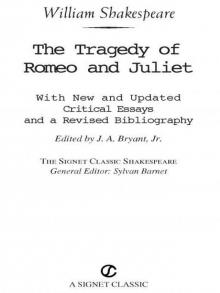 Romeo and Juliet
Romeo and Juliet As You Like It (Folger Shakespeare Library)
As You Like It (Folger Shakespeare Library)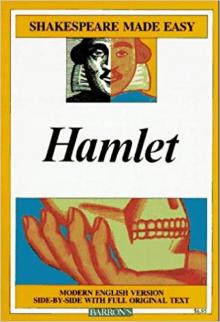 Hamlet
Hamlet Richard II (Folger Shakespeare Library)
Richard II (Folger Shakespeare Library) Macbeth
Macbeth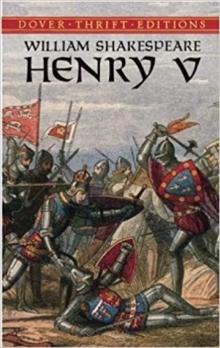 Henry V
Henry V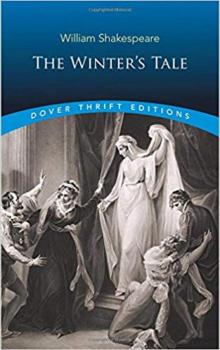 The Winter's Tale
The Winter's Tale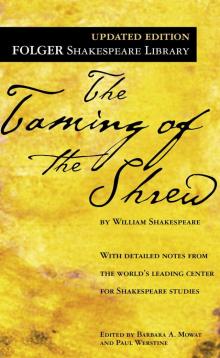 The Taming of the Shrew
The Taming of the Shrew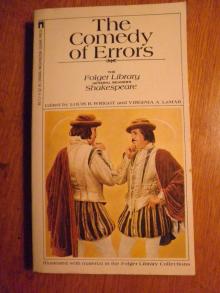 The Comedy of Errors
The Comedy of Errors King Lear (Folger Shakespeare Library)
King Lear (Folger Shakespeare Library)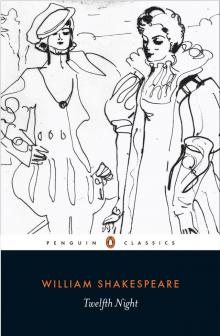 Twelfth Night
Twelfth Night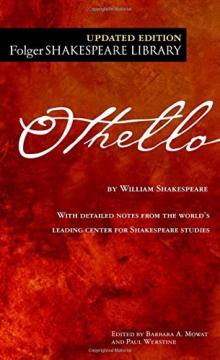 Othello
Othello The Two Gentlemen of Verona
The Two Gentlemen of Verona Henry IV, Part 1 (Folger Shakespeare Library)
Henry IV, Part 1 (Folger Shakespeare Library)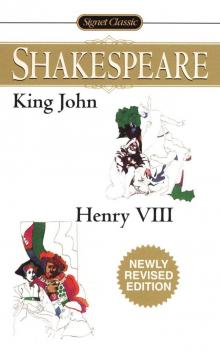 King John/Henry VIII (Signet Classics)
King John/Henry VIII (Signet Classics)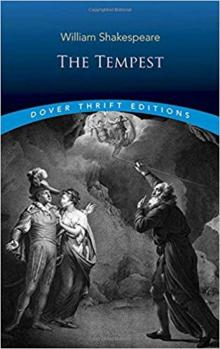 The Tempest
The Tempest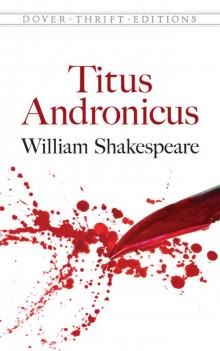 Titus Andronicus (Dover Publications)
Titus Andronicus (Dover Publications)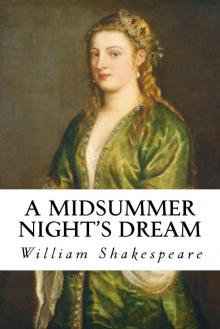 A Midsummer Night's Dream
A Midsummer Night's Dream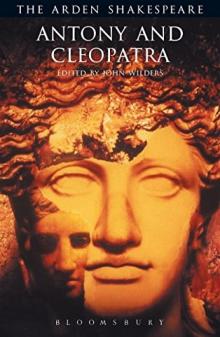 Antony and Cleopatra (Arden Shakespeare: Third Series)
Antony and Cleopatra (Arden Shakespeare: Third Series)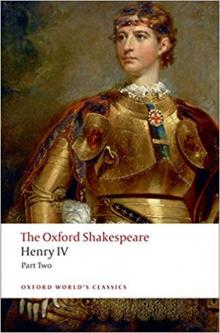 The Oxford Shakespeare: Henry IV, Part 2 (Oxford World's Classics)
The Oxford Shakespeare: Henry IV, Part 2 (Oxford World's Classics)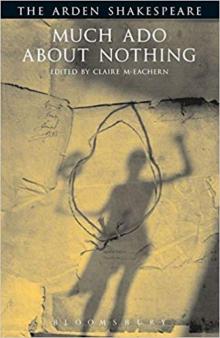 Much Ado About Nothing (Arden Shakespeare: Third Series)
Much Ado About Nothing (Arden Shakespeare: Third Series) All's Well That Ends Well
All's Well That Ends Well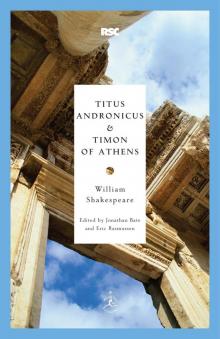 Titus Andronicus & Timon of Athens
Titus Andronicus & Timon of Athens Richard III (Modern Library Classics)
Richard III (Modern Library Classics) Coriolanus
Coriolanus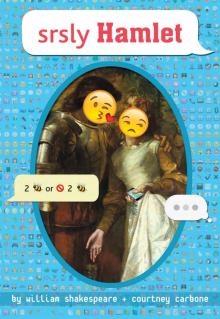 srsly Hamlet (OMG Shakespeare)
srsly Hamlet (OMG Shakespeare)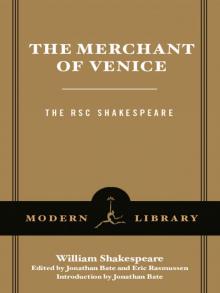 The Merchant of Venice
The Merchant of Venice Richard III
Richard III Richard II
Richard II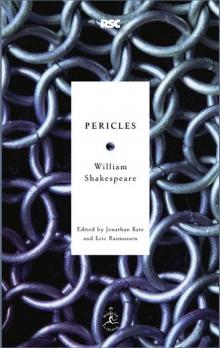 Pericles
Pericles As You Like It
As You Like It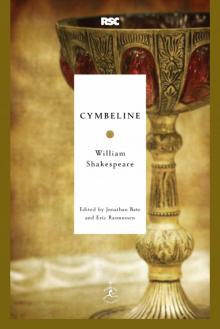 Cymbeline
Cymbeline Alls Wel that ends Well
Alls Wel that ends Well YOLO Juliet
YOLO Juliet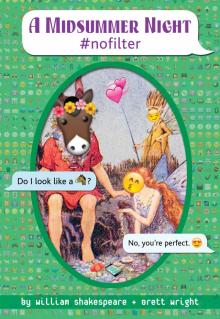 A Midsummer Night #nofilter
A Midsummer Night #nofilter Love's Labour's Lost
Love's Labour's Lost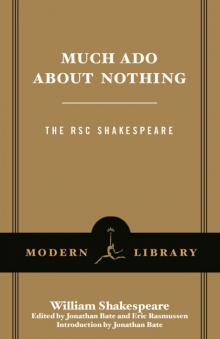 Much Ado About Nothing
Much Ado About Nothing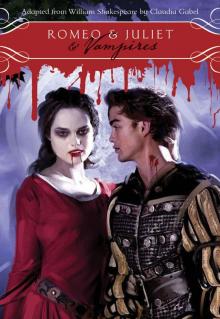 Romeo & Juliet & Vampires
Romeo & Juliet & Vampires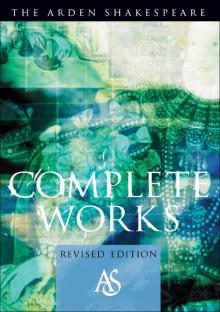 The Arden Shakespeare Complete Works
The Arden Shakespeare Complete Works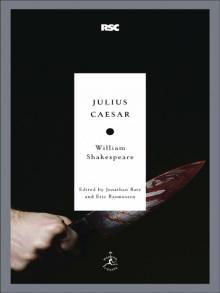 Julius Caesar
Julius Caesar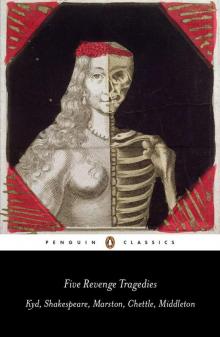 Five Revenge Tragedies: The Spanish Tragedy, Hamlet, Antonio's Revenge, The Tragedy of Hoffman, The Revenger's Tragedy (Penguin Classics)
Five Revenge Tragedies: The Spanish Tragedy, Hamlet, Antonio's Revenge, The Tragedy of Hoffman, The Revenger's Tragedy (Penguin Classics)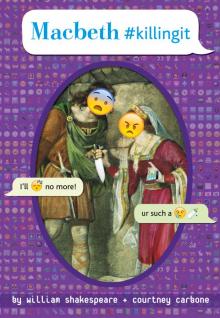 Macbeth #killingit
Macbeth #killingit The Oxford Shakespeare: The Complete Works
The Oxford Shakespeare: The Complete Works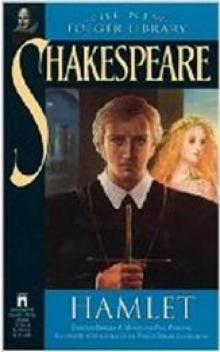 Hamlet, Prince of Denmark (Collins edition)
Hamlet, Prince of Denmark (Collins edition)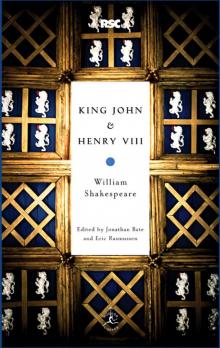 King John & Henry VIII
King John & Henry VIII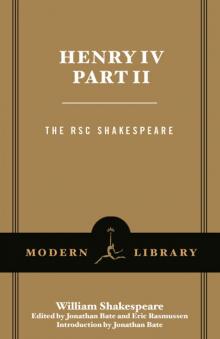 Henry IV, Part 2
Henry IV, Part 2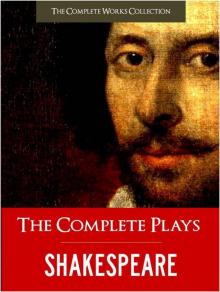 Complete Plays, The
Complete Plays, The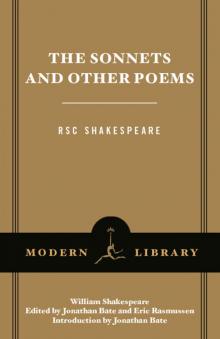 The Sonnets and Other Poems
The Sonnets and Other Poems Antony and Cleopatra
Antony and Cleopatra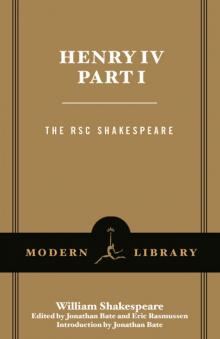 Henry IV, Part 1
Henry IV, Part 1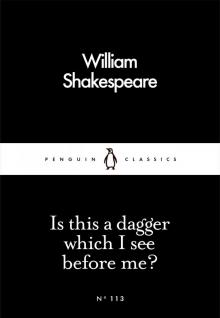 Is This a Dagger Which I See Before Me?
Is This a Dagger Which I See Before Me?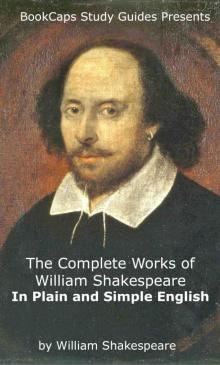 The Complete Works of William Shakespeare In Plain and Simple English (Translated)
The Complete Works of William Shakespeare In Plain and Simple English (Translated) The Sonnets
The Sonnets